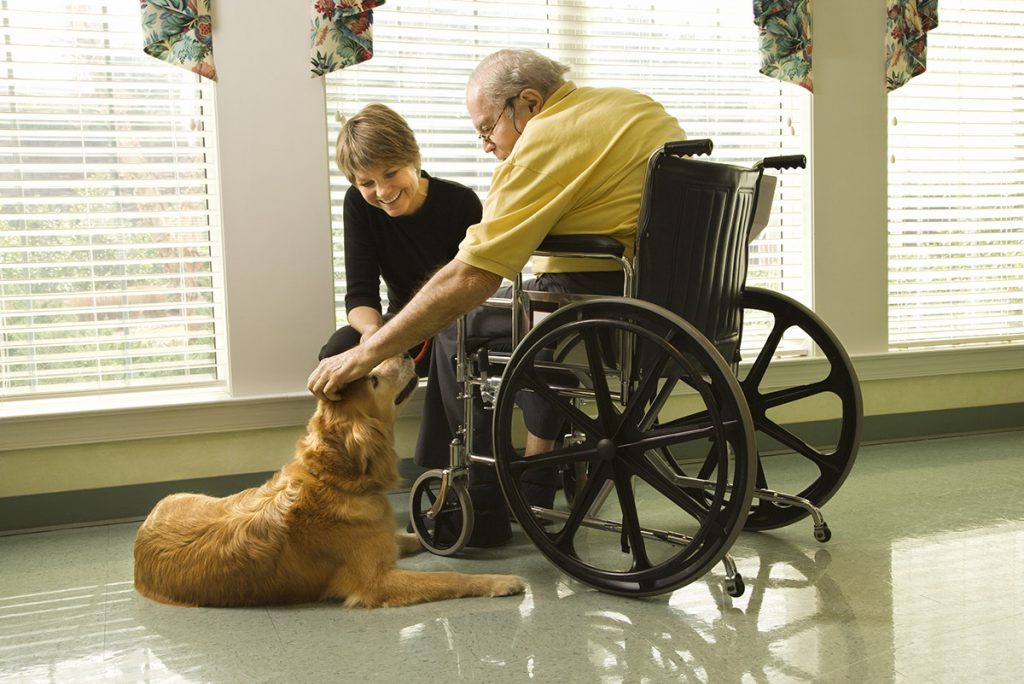When your loved one has to move to assisted living, it does not mean they have to go alone. Many assisted living facilities allow smaller dogs to join their owners in the next stage in life. Here are a few tips to help you get started:
Owning a Dog vs a Puppy—what’s best in assisted living?
Owning a dog has a whole new set of implications when that dog is under a few years old. Although puppies may win with the cuteness factor, owning a puppy presents certain challenges that might not be suitable for some assisted living residents.
- Why not a puppy?
Puppies can chew on furniture, run out doors quicker than its owner can stop, and often require potty training. If a resident in an assisted living facility is not mobile or active enough to handle these characteristics, he/she should consider owning an older, trained, and more predictable dog.
Best Breeds to Have in Assisted Living
Although they can be some of the most lovable breeds, larger dogs like German Shepherds and Golden Retrievers are not suitable for assisted living environments. Neither are dogs who might shed too much or are less personable toward strangers. Some of the best breeds for assisted living environments to look into are:
- Schnauzers (miniature or regular)
- Shih Tzu
- Maltese
- Miniature Collie
- Chiahuahua
- Boston Terrier
- Poodle
Appropriate Dog Age
As was seen above, having a dog that is too young presents problems some older adults aren’t able to handle, but the same can happen with older dogs. As dogs age, they begin having more health problems that can put a financial and emotional strain on their owners. It’s hard for some assisted living residents to make vet trips and forgetful adults might not remember medications their dogs need. It’s best to start off with a dog that is over the age of 2 and less than 6 (depending on the lifespan of the breed).
Owner’s Medical Needs
When considering bringing a dog to assisted living, the owner must also consider how his/her medical situation might interact with the dog. For some, that might mean not owning a dog (if having one endangers the owners life, such as increasing a fall risk). An assisted living resident might even be able to get a certified therapy or assistance dog based on his/her medical needs.
Community Requirements
Another consideration to keep in mind when considering bringing a dog into assisted living is how the community would adjust to having the dog present. If the community you are moving into has plenty of residents who own dogs, then you are in good shape. However, if the community has certain requirements, such as pets under a certain weight, or paying a pet deposit, you’ll want to take those things into account when preparing your move.
If you have more questions about your furry friends and the senior citizens in your life, visit www.harmonymoves.com. The specialists there are ready and willing to help you anytime.

